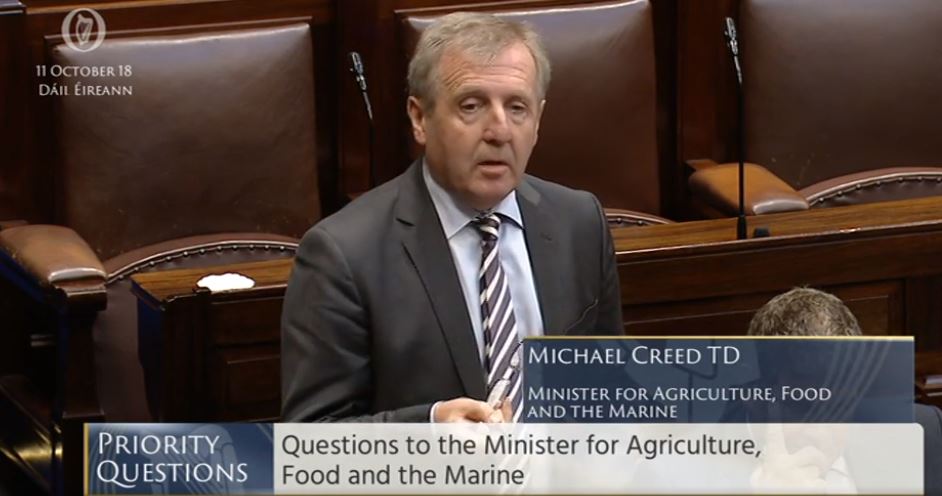Exceptional aid comprising a number of measures will be necessary to protect the Irish beef industry from the worst effects of Brexit, according to Minister for Agriculture, Food and the Marine Michael Creed.
Speaking in the Dáil yesterday evening (Tuesday, March 26), the minister responded to a question from Fianna Fáil TD Jackie Cahill, who asked what EU mechanisms are in place to ensure adequate price supports will be introduced for all Brexit scenarios.
‘Explicitly recognised’
In response, the minister highlighted that the threat faced by Ireland’s agrifood sector is “explicitly recognised” in the European Commission’s communications, adding that he had stressed the need for European measures to Commissioner for Agriculture Phil Hogan.
“The terms and conditions of any aid package will be announced in due course in the event that a disorderly Brexit occurs,” he said.
Deputy Cahill put further question marks over the measures, adding that proposed intervention supports for beef would be inadequate.
In response, the minister said: “The range of interventions will be across the commodity areas, beef included, and will include the traditional ones of intervention and aids to private storage.
I take the deputy’s point about intervention not being of much value in the context of beef. Our ambition in the context of what might happen in a worst-case scenario in the UK is to keep our product on the supermarket shelves there, and to do that will require exceptional aid.
“Intervention and aids to private storage (APS) would not be, I believe, of much benefit in the context of the beef sector.
“They are instruments that are available under the CMO regulations that could be of benefit in other commodity areas, perhaps the cheddar cheese area or on the pork side, for example.
“I do not want to rule anything out.”
“We hope that this will happen in an orderly way, but in the event of a crash-out, exceptional aid will be required.”
This, the minister noted, has been provided for as well and was deployed previously by the commission in response to the Russian embargo of recent years.
There is some experience but this situation is of a scale that is much different and much more significant than that incident. For this reason, I believe exceptional aid will be necessary in the context of the beef industry.
“This aid, as I have always said, will be a combination of exceptional aid, APS, intervention mechanisms available under the Common Market regulations and exchequer funding,” the minister concluded.
